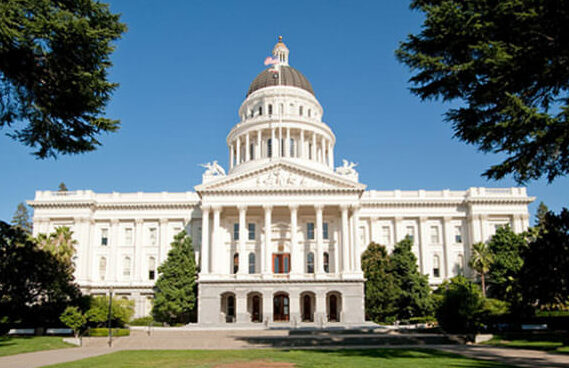By TR Robertson
If things weren’t crazy enough as 2021 draws to a close, get ready for hundreds of new laws in California that go into effect January 1, 2022. Listed below are just a few of the new laws and a brief description of each one.
SB332 – Wildfires – the existing law prohibits a person from setting fire or causing fire to be set to any forest, brush or other flammable material that is on any land that is not the person’s own. This bill reduces the liability of those who are doing prescribed control burns for the purpose of wildland fire hazard reduction to reduce dry fuel that needs clearing before fire season.
SB3 – Minimum Wage – This bill would require the minimum wage for all industries to rise to $15 for employers employing 26 or more employees and $14 for employers employing 25 or fewer employees.
SB389 – Cocktails-To-Go – Getting cocktails and wine to go with your dinner order was introduced during the pandemic. This bill allows restaurants to continue doing so until December 31, 2026. Delivery of cocktails ends on December 31, 2021.
SB43 – Traffic Safety – This bill authorizes local authorities to reduce speed limits in consideration of the safety of vulnerable pedestrian groups such as cyclists and pedestrians.
SB221 – Mental Health – This bill codifies regulations adopted by the Department of Managed Health Care and the Department of Insurance to provide timely access standards for health care service plans and insurers for non-emergency health care services. There will be a new policy beginning July 1, 2022, that would allow an enrollee or insured undergoing a course of treatment for an ongoing mental health or substance use disorder condition to get a follow-up appointment from a non-physician mental health care or substance use provider within 10 days of their last appointment.
AB286 – Food Delivery Apps and Tips – It is illegal for food delivery apps to retain any portion of a tip or gratuity. If the order is for delivery, that tip must go to the individual worker. If the order is for pick-up, the gratuity must go to the restaurant.
AB701 – Warehouse Quotas – This bill regulates productivity quotas for warehouse distribution centers with more than 100 employees at a single site. The law prevents employers at companies from requiring quotas that would prohibit an employee from taking rest or meal breaks. It also requires employers to describe in writing any quota an employee may face and to state what adverse action could occur if they fail to meet that quota.
AB1003 – Intentional Wage Theft – This bill makes the intentional theft of wages of an amount over $950 is now a grand theft in the California Penal Code and therefore a felony.
AB3 – Sideshow Definition and Penalties – This law strengthens penalties for illegal street takeovers for racing purposes. The definition of a Sideshow is in the bill. The penalty portion does not go into effect until July 1, 2025, and includes a driver’s license suspension for 90 days to 6 months for people convicted of exhibition of speed during the sideshow.
AB974 – Equestrian Safety Gear – This stipulates that anyone under the age of 18 must wear a helmet when riding a horse, mule or donkey on a paved highway. It also requires riders of all ages and their equines must wear a lamp or reflective gear when riding after dark.
AB798 – Tribal Emergency Vehicles – This legislation removes restrictions on ambulances owned and operated by a fire department of one of the more than 100 federally recognized Native American tribes in the state that had essentially treated then the same as privately operated ones. Additionally, a vehicle owned or operated by a federally recognized tribe would be considered an authorized emergency vehicle when responding to emergency calls.
AB1033 – Expansion of California Family Rights Act – Employees that qualify for protected family care and medical leave under the CFRA will be able to use such leave to care for parent-in-law, defined as the parent of a spouse or domestic partner. Employers must ensure that their human resources departments and leave administrators are educated on this expanded right.
Proposition 12 – Farm Animals – metal enclosures that restrict pigs from turning around and battery cages that prevent hens from opening their wings are now illegal. There is a lawsuit attempting to block the implementation of the new rules.
Toy Section Law – Enforcement does not go into effect until 2024. Stores in California with more that 500 employees in their California locations must have a “reasonable selection” of toys and childcare items that do not have specific gendered marketing. The law is attempting to reduce stereotyping toys by gender. Fines will begin in 2024 for non-compliance.
Police Officer Misconduct – this law requires police officers who have committed and found to be involved in misconduct will have their licenses revoked so they cannot switch to other departments. Officers can also have their license pulled if they fail to intervene when they see another officer using excessive force.
Police Officer Restrictions – this law requires law enforcement to receive permission from their local agency before purchasing surplus military equipment. Peace Officers can no longer use tear gas or rubber bullets on protesters unless all other crowd control methods have been exhausted and it is objectively reasonable to defend against a threat to life or serious bodily injury.
Spousal Rape – California Penal Code is altered to make rape within marriage the same in every legal way to any instance of rape, except in cases where a person is incapable of giving consent “because of a mental disorder or developmental or physical disability,’ which would only be legally considered rape if the two people are unmarried. The spouse committing the crime can still be prosecuted for rape under other statues of the penal code.
These are but a few of the many state and federal laws that go into effect January 1, 2022, some with provisions for further enactments at additional dates.




